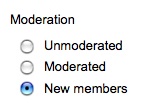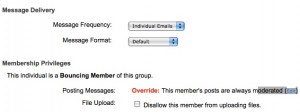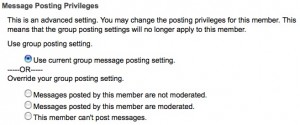After 6 Years We’re Still Struggling to Establish Any Sustainable Community/Special Interest Group in India
Saturday, May 28th, 2011For the last 6+ years, few of us in India, are trying to establish a sustainable Agile community. The truth is that we are still struggling to have a self-sufficient, self-driven community.
We don’t seem to be hosting regular user group meetings. Our sporadic events seem to attract mostly new people each time. Next meeting we rarely see them. Huge number of people sign up, but only a fraction show up.
Its not just the Agile community, we’ve tried many other communities like .Net User Group, TechCamp, GeekNight, BarCamps, etc. Except the Linux community (FOSS now) I don’t think any other software community has really sustained itself.
This is very contrary to what I saw when I used to facilitate the Agile Philly User Group and the Philly GeekNight. People used to drive 2 hrs to attend the meeting. We had the same set of people coming every meeting. We all had this sense of learning and growing together.
What do you think is different in India?
IMHO the biggest problem I see is that there is so much “mediocre job opportunity” available, that frankly software professionals can be in demand for many years without learn anything new. With many people I sense a “there-is-no-need-to-stretch-ourself” attitude. Necessity is the mother of innovation and action. People don’t see the necessity. Period.
There are very few people I know who care about learning and exploring and growing.
Some other problems I see:
- For most people, there is no end to mediocre opportunities and they are happy with it. “This job sucks, but its OK, I get a decent salary.” kind of attitude. The ones who want to purse big dreams mostly move to US or other places. (There are always exceptions to the rule.)
- With all the personal, social life & society obligations and working late to catch up with counterparts in other countries, there is very little time left for user groups and other initiatives. Even if one is interested, the traffic and other logistics make it next to impossible to motivate people.
- There is country culture, but the biggest culprit is the Organization culture. At certain places I’ve worked, if you are not learning new stuff, you feel like a piece of shit. But in many other companies I’ve visited, that’s not the case.
- Indian Software Industry is unfortunately very “brand conscious“. If its a big name speaking at an event, people will walk a whole day to attend the event. But if its a local speaker presenting, it doesn’t appeal.
I’m sorry if you find me ranting, but I’m disappointed with the attitude. I’ve almost lost hope, but may be you can show me the light.





